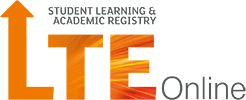What are Practical and laboratory-based sessions?
Practical and laboratory-based sessions normally include a strong demonstration element, for example important techniques or how to use specific equipment, and they encourage students to have a go themselves.
It is often the case that practical or laboratory-based sessions begin with teaching basic skills, before students start applying them to investigate specific problems with the minimum of help or instruction. Figure 1 describes a number of typical practical tasks can be identified and categorised, from simple (closed) to more complex (open).
| Figure 1: Types of practical tasks | ||
| 1. | Tutor-led demonstrations | Usually done to demonstrate theoretical principles or explain standard instructions |
| 2. | Exercises | From highly to, gradually, less structured experiments, designed so that students follow detailed instructions, learn specific manipulative and observation techniques and obtain known answers or results |
| 3. | Structured enquiry | Structured experiments where students have responsibility for selecting resources, determining some parts of the methodology, and are given the opportunity to develop problem-solving and interpretative skills |
| 4. | Open-ended enquiry | Students define a problem, choose and design an experimental methodology, consider its limitations, interpret results, and consider and discuss their implications – normally under time and/or resource constraints |
| 5. | Projects | Carried out over a long period of time, and often in groups, they allow students to identify a problem, engage with, and explore, a topic in depth, and develop initiative and autonomy, as well as project and time management, and where appropriate, teamwork skills |
What are they for?
Practical and laboratory-based learning sessions are likely to promote deep approaches to learning in many ways. They encourage students to:
- improve technical skills relevant to the subject
- improve understanding of methods of scientific enquiry
- reinforce theory with practice
- develop problem-solving skills
- nurture professional attitudes.
Practical and laboratory-based learning sessions create opportunities for self-, peer- and teacher-assessment of students’ understanding of links between practice and theory and of subject-specific competencies (Figure 2).
| Figure 2: Possible outcomes of practical and laboratory-based learning sessions |
Depending on the subject area covered and the level of study, practical sessions are likely to lead to achieving the following learning outcomes
|
Planning and designing practical and laboratory sessions
Planning practical and laboratory-based work demands the same level of planning and preparation as for any other types of learning sessions. In particular, you should:
- establish aims and intended learning outcomes for the session and link them to the wider programme of learning
- choose and design appropriate, safe and feasible learning tasks
- design supportive resources, including instructions, procedures, a manual or worksheets.
Additionally, you should think carefully about:
- what students need to know to carry out practical tasks appropriately, and safely
- which skills students are expected to develop
- what equipment will be needed
- which problems students may encounter during the session.
Delivering practical and laboratory sessions
According to the Engineering Professors’ Council (1994), there are normally four main phases in a typical practical and laboratory-based sessions (Figure 3).
| Figure 3: Four main phases | ||
| 1. | Preliminary |
|
| 2. | Opening |
|
| 3. | Main section |
|
| 4. | Ending |
|
Figure 4 expands on the fourth phase of ‘ending’ a practical laboratory session with effective questions which can generate relevant, useful and meaningful interaction with individual students and groups. Questions should take account of students’ prior experience, challenge their knowledge and understanding, and help them to develop appropriate critical-thinking skills.
| Figure 4: Examples of questions |
Some examples of questions you could ask students to generate interaction and promote more active, deeper approaches to learning.
|
Assessing practical and laboratory sessions
As any other type of learning activity, practical and laboratory-based work will be assessed. In fact, its importance should be reflected appropriately in its place in the overall assessment strategy, for example in the weight of the mark allocated in relation to the final mark for the module/programme.
Sometimes product is emphasised and bears a higher proportion of the overall mark for the practical component but, ideally, both process and outcome should normally be assessed.
| Figure 5: Three main approaches to assessing practical work | ||
| Three main approaches to assessing practical work can be adopted. | ||
| 1. | Evaluating some end product | In well-controlled practicals, the nature of the product may reflect the quality of the process, but in more open types of practical work, there may be many factors beyond the students’ control that weaken that link. |
| 2. | Evaluating only the process | Using a template grid of previously established criteria, the teacher observes the students while they are carrying out the practical tasks. (Or the observation is done by other students in place of, or at the same time as, the teacher.) Students are made aware of the criteria prior to the start of the assessed activity. |
| 3. | Evaluating the quality of process through marking written reports | When assessment of practicals becomes that of a written report, it is the quality of the report which tends to be measured rather than that of the work itself or the extent to which practical skills have been developed. |
The traditional report will continue to have an important place in assessing practical and laboratory-based work, but alternative methods could be promoted that complement and enhance it.
| Figure 6: Assessment methods for practical and laboratory-based work |
|
As for any other teaching methods, practical and laboratory-based sessions should aim to create a suitable environment which maximises learning and achieving learning outcomes. Careful planning, learning-centred delivery, valid and meaningful assessment strategies and skilled lesson management are essential components of a systematic approach to designing this type of learning experience.
